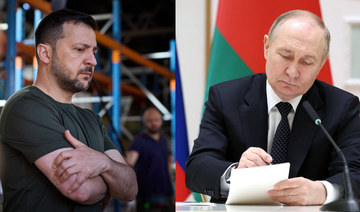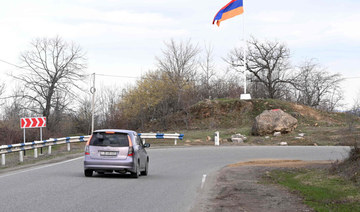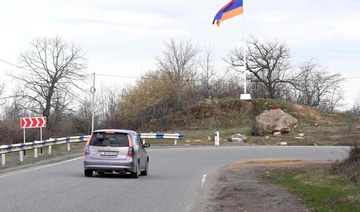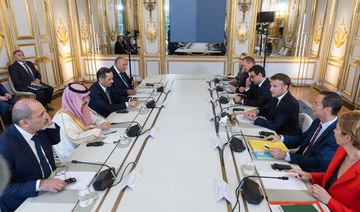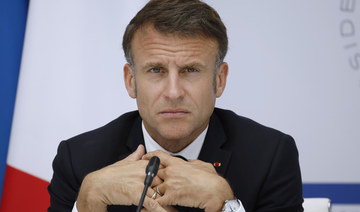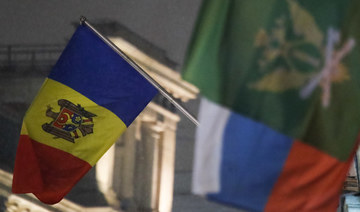BUFFALO, N.Y.: A white supremacist who killed 10 Black people at a Buffalo supermarket was sentenced to life in prison without parole Wednesday after relatives of his victims confronted him with pain and rage caused by his racist attack.
Anger briefly turned physical at Payton Gendron’s sentencing when a victim’s family member rushed at him from the audience. The man was quickly restrained; prosecutors later said he wouldn’t be charged. The proceeding then resumed with an emotional outpouring from people who lost loved ones or were themselves wounded in the attack.
Gendron, whose hatred was fueled by racist conspiracy theories he encountered online, cried during some of the testimony and apologized to victims and their families in a brief statement.
Their remarks ranged from sorrow to outrage, shouts to tears. Some vehemently condemned him; others quoted from the Bible or said they were praying for him. Several pointed out that he deliberately attacked a Black community a three-hour drive from his home in overwhelmingly white Conklin, New York.
“You’ve been brainwashed,” Wayne Jones Sr., the only child of victim Celestine Chaney, said as sobs rose from the audience. “You don’t even know Black people that much to hate them. You learned this on the Internet.”
“I hope you find it in your heart to apologize to these people, man. You did wrong for no reason,” Jones said.
Gendron’s victims at the Tops Friendly Market — the only supermarket and a neighborhood hub on Buffalo’s largely Black East Side — included a church deacon, the grocery store’s guard, a man shopping for a birthday cake, a grandmother of nine and the mother of a former Buffalo fire commissioner. The victims ranged in age from 32 to 86.
Gendron pleaded guilty in November to crimes including murder and domestic terrorism motivated by hate, a charge that carried an automatic life sentence.
“There can be no mercy for you, no understanding, no second chances,” Judge Susan Eagan said as she sentenced him. She called his rampage “a reckoning” for a nation “founded and built, in part, on white supremacy.”
Gendron, 19, is due in a federal court Thursday for a status update in a separate case that could carry a death sentence if prosecutors seek it. His attorney said in December that Gendron is prepared to plead guilty in federal court to avoid execution. New York state does not have the death penalty.
The gunman wore bullet-resistant armor and a helmet equipped with a livestreaming camera as he carried out the May 14 attack with a semiautomatic rifle he purchased legally but then modified so he could load it with illegal high-capacity ammunition magazines.
“Do I hate you? No. Do I want you to die? No. I want you to stay alive. I want you to think about this every day of your life,” Tamika Harper, a niece of victim Geraldine Talley, told Gendron. “Think about my family and the other nine families that you’ve destroyed forever.”
Gendron locked eyes with Harper as she gently spoke. Then he lowered his head and wept.
Minutes later, Barbara Massey Mapps excoriated him for killing her 72-year-old sister, Katherine Massey, a neighborhood activist. As Mapps shouted and pointed at Gendron, a person in the audience took a few steps toward him before getting held back.
“You don’t know what we’re going through,” a man shouted as he was led away by court officers. For several minutes thereafter, family members hugged and calmed each other.
Eagan then ordered Gendron back in after admonishing everyone to behave appropriately.
In his short statement, Gendron acknowledged he “shot and killed people because they were Black.”
“I believed what I read online and acted out of hate, and now I can’t take it back, but I wish I could, and I don’t want anyone to be inspired by me,” he told the victims and their relatives. His own parents didn’t attend.
One woman in the audience stood up, screamed “we don’t need” his remarks and stormed out of the courtroom.
There were only three survivors among the 13 people he shot while specifically seeking out Black shoppers and workers.
Deja Brown said her father, Andre Mackniel, was blindsided “at the hands of a selfish boy who’s obviously not educated on the history of African Americans.”
Mackniel’s young son still calls for a father who was gunned down while shopping for a birthday cake for him, said his brother, Vyonne Elliott.
Christopher Braden, a Tops employee who was shot in the leg, said he was haunted by seeing the victims where they lay as he was carried out of the store.
“The visions haunt me in my sleep and every day,” he said.
In documents posted online, Gendron said he hoped the attack would help preserve white power in the US He wrote that he picked the Tops grocery store because it is in a predominantly Black neighborhood. Prosecutor Justin Caldwell said Gendron hoped to start a race war, but instead the community came together.
Reacting from Washington, NAACP President Derrick Johnson called on federal leaders to acknowledge “the constant threat of violence” to Black communities and urged the media to stop spreading misinformation that feeds racist conspiracy theories.
The mass shooting in Buffalo, soon followed by another that killed 19 students and two teachers at a Texas elementary school, amplified calls for stronger gun controls.
New York legislators quickly passed a law banning semiautomatic rifle sales to most people under age 21. The state also banned sales of some types of body armor.
In June, President Joe Biden, a Democrat, signed a compromise gun violence bill intended to toughen background checks, keep firearms from more domestic violence offenders and help states make it easier for authorities to take weapons from people adjudged to be dangerous.
White supremacist gets life in prison for Buffalo massacre
https://arab.news/v7edv
White supremacist gets life in prison for Buffalo massacre
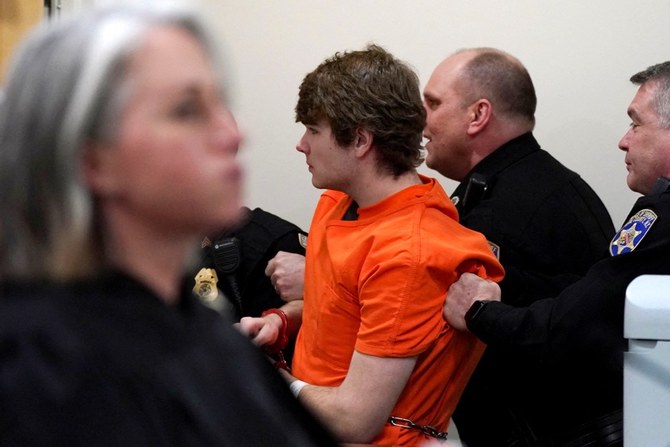
Putin arrives in Uzbekistan on his 3rd foreign trip since re-election
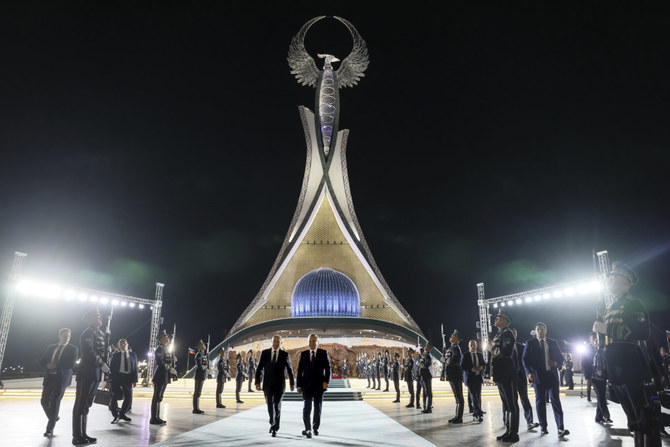
- The Kremlin leader has traveled abroad only infrequently since the start of Moscow’s invasion of Ukraine in February 2022
MOSCOW: Russian President Vladimir Putin arrived Sunday in the capital of Uzbekistan where he is to hold talks with President Shavkay Mirziyoyev that are expected to focus on deepening the countries’ relations.
Putin laid a wreath at a momument to Uzbekistan’s independence in Tashkent and held what the Kremlin said were informal talks with Mirziyoyev. The formal meeting of the presidents is to take place Monday.
Kremlin spokesman Dmitry Peskov, quoted by news agencies, told Russian television that Russia was open to broader cooperation on gas supplies with Uzbekistan, saying “the possibilities here are very extensive.”
The visit is Putin’s third foreign trip since being inaugurated for a fifth term in May. He first went to China, where he expressed appreciation for China’s proposals for talks to end the Ukraine conflict, and later to Belarus where Russia has deployed tactical nuclear weapons.
Ahead of the Uzbekistan trip, Putin and Mirziyoyev discussed an array of bilateral cooperation issues, including trade and economic relations, the Kremlin said.
The Kremlin leader has traveled abroad only infrequently since the start of Moscow’s invasion of Ukraine in February 2022.
The International Criminal Court issued a warrant for his arrest last March on suspicion of illegally deporting hundreds of children from Ukraine. The Kremlin denies those allegations.
Armenians throng center of the capital to demand the prime minister’s resignation
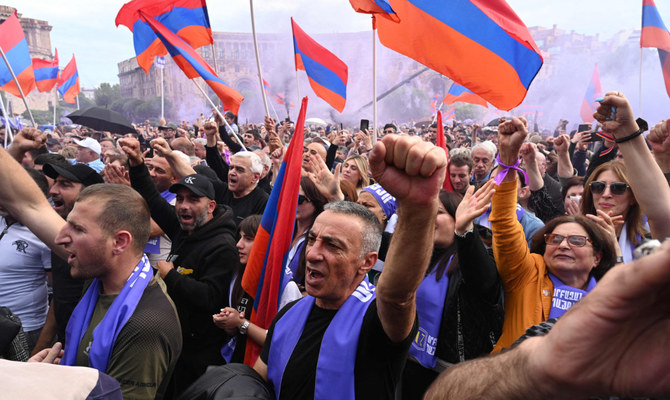
- Movement leaders told the rally Sunday that they support Galstanyan becoming the next prime minister
YEREVAN, Armenia: Tens of thousands of demonstrators held a protest Sunday in the center of the capital of Armenia, calling for the resignation of Prime Minister Nikol Pashinyan after Armenia agreed to hand over control of several border villages to Azerbaijan.
The demonstration was the latest in a weekslong series of gatherings led by a high-ranking cleric in the Armenian Apostolic Church, Bagrat Galstanyan, archbishop of the Tavush diocese in Armenia’s northeast.
He spearheaded the formation of a movement called Tavush For The Homeland after Armenia in April agreed to cede control of four villages in the region to Azerbaijan. Although the villages were the movement’s core issue, it has expanded to express a wide array of complaints about Pashinyan and his government.
Movement leaders told the rally Sunday that they support Galstanyan becoming the next prime minister.
The decision to turn over the villages in Tavush followed the lightning military campaign in September in which Azerbaijan’s military forced ethnic Armenian separatist authorities in the Karabakh region to capitulate.
After Azerbaijan took full control of Karabakh, about 120,000 people fled the region, almost all of its ethnic Armenian population.
Ethnic Armenian fighters backed by Armenian forces had taken control of Karabakh in 1994 at the end of a six-year war. Azerbaijan regained some of the territory in fighting in 2020 that ended in an armistice that brought in a Russian peacekeeper force, which began withdrawing this year.
Pashinyan has said Armenia needs to quickly define the border with Azerbaijan to avoid a new round of hostilities.
Man accused in fiery liquid attacks on New York City subway riders

- While violent crime is rare in the city’s subway system, which serves about 3 million riders a day, some high-profile attacks this year have left some riders on edge
NEW YORK: A man set a cup of liquid on fire and tossed it at a fellow subway rider in New York City, setting the victim’s shirt ablaze and injuring him, police said Sunday.
The random attack happened on a No. 1 train in lower Manhattan on Saturday afternoon, city police said, adding that the suspect was in custody on an array of criminal charges. Authorities also charged the man in connection with a similar fiery assault on the subway in February.
The victim from Saturday, a 23-year-old man, was recovering at a hospital. He told the New York Post that he shielded his fiancee and cousin from the burning liquid and his shirt caught on fire. He said he slapped himself to put out the flames. Doctors told him he had burns on about a third of his body, he said.
“He had a cup,” the victim told the Post. “He made fire and he threw it all.”
While violent crime is rare in the city’s subway system, which serves about 3 million riders a day, some high-profile attacks this year have left some riders on edge. They include the death of a man who was shoved onto the tracks in East Harlem in March and a few shootings.
The suspect in Saturday’s assault, Nile Taylor, 49, was arrested a short time after it happened when police tracked a phone he allegedly stole from another subway rider to his location, authorities said. He was charged with assault, arson, illegal possession of a weapon and several other crimes.
It wasn’t immediately clear if Taylor had a lawyer who could respond to the allegations, or when he would be arraigned in court.
Authorities also announced on Sunday afternoon that Taylor was charged with attempted assault, reckless endangerment and arson in the February attack. Police say he threw a container with a flaming liquid at a group of people on a subway platform in the West 28th Street station. No one was injured.
Gov. Kathy Hochul in March announced that hundreds of National Guard members would be going into the subway system to boost security. City police said 800 more officers would be deployed to the subway to crack down on fare evasion.
Macron urges defense of democracy on state visit to Germany
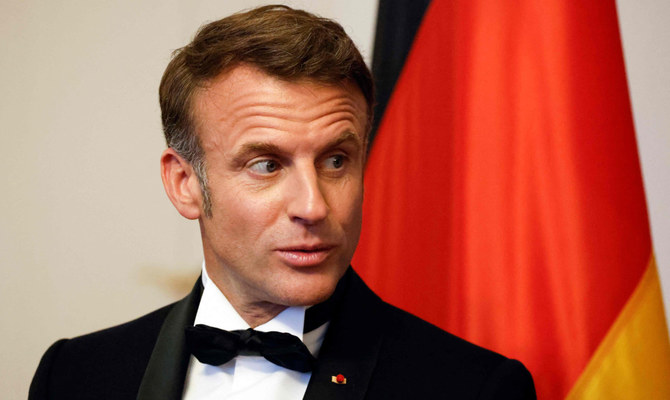
- Macron made his first stop a democracy festival in Berlin, where he warned of a “form of fascination for authoritarianism which is growing” in the two major EU nations
BERLIN: Emmanuel Macron began Sunday the first state visit to Germany by a French president in a quarter-century, bringing a plea to defend democracy against nationalism at coming European Parliament elections.
Macron made his first stop a democracy festival in Berlin, where he warned of a “form of fascination for authoritarianism which is growing” in the two major EU nations.
“We forget too often that it’s a fight” to protect democracy, Macron said, accompanied by German President Frank-Walter Steinmeier.
If nationalist parties had been in power in Europe in recent years, “history would not have been the same,” he said, pointing to decisions on the coronavirus pandemic or Russia’s invasion of Ukraine.
Steinmeier said: “We need an alliance of democrats in Europe.”
Macron “has rightly pointed out that the conditions today before the European elections are different from the previous election, a lot has happened,” he added.
The trip comes two weeks ahead of European Union elections in which polls are indicating a major potential embarrassment for Macron, with his centrist coalition trailing behind the far right.
It could even struggle to reach a third-place finish.
In Germany too, all three parties in Chancellor Olaf Scholz’s coalition are polling behind the far-right AfD in surveys, despite a series of scandals embroiling the anti-immigration party.
At a press conference, Macron said he would work to “unmask” France’s far-right National Rally (RN), saying that “nothing in their rhetoric holds water.”
“Unlike many, I’m not getting used to the idea that the National Rally is just another party. And so when it’s at the top of the surveys, I see this party and its ideas as a threat to Europe,” he said.
In a keynote address on foreign policy last month, Macron warned about the threats to Europe in the wake of Russia’s 2022 invasion of Ukraine.
“Our Europe, today, is mortal and it can die,” he said. “It can die, and this depends only on our choices.”
Ramping up his warning in Berlin, Macron urged Europeans “to go vote for the party that we back and a party that defends Europe.”
Hosting a state banquet later Sunday for Macron, Steinmeier also referred to the threat posed by Russia.
“Together we must learn again to better protect ourselves against aggressors, and to make our societies more resilient against attacks from within and without,” he said.
After the talks with Steinmeier, Macron is due to bring his message to Dresden in the former East German state of Saxony, where the AfD has a strong support base.
On Tuesday, Macron will visit the western German city of Munster and later Meseberg, outside Berlin, for talks with Scholz and a joint Franco-German cabinet meeting.
Beyond making joint appeals for the European elections, Macron’s three-day visit will seek to emphasize the historic importance of the postwar relationship between the key EU states.
France next month commemorates 80 years since the D-Day landings that marked the beginning of the end of Nazi Germany’s World War II occupation.
But all has not been smooth in a relationship often seen as the engine of the EU, and German officials are said to be uneasy at times about Macron’s perceived theatrical style of foreign policy.
Macron’s refusal to rule out sending troops to Ukraine sparked an unusually acidic response from Scholz that Germany had no such plans. Germany also does not share Macron’s enthusiasm for a European strategic autonomy less dependent on the United States.
But Macron sought to dismiss talk about discord, saying that coordination with Germany had been key over the years.
He cited agreements on sanctions against Russia over its war on Ukraine and action to spur European economic growth and innovation after the Covid pandemic.
“The Franco-German relationship is about disagreeing and trying to find ways of compromise,” said Helene Miard-Delacroix, specialist in German history at the Sorbonne university in Paris.
While Macron is a frequent visitor to Berlin, the trip is the first state visit in 24 years, since a trip by Jacques Chirac in 2000, and the sixth since the first postwar state visit by Charles de Gaulle in 1962.
Lithuania’s President Nauseda re-elected in vote marked by Russia fears
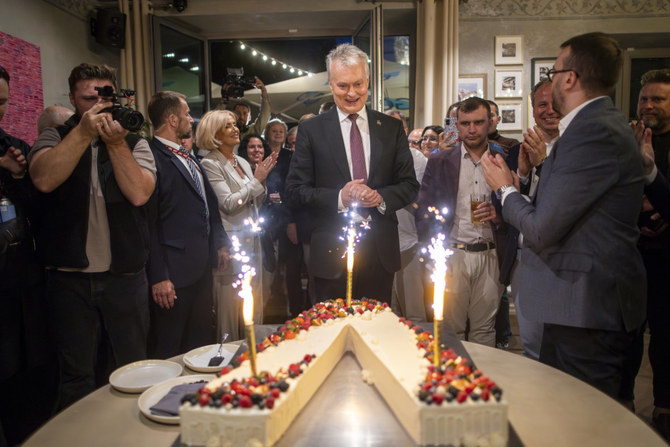
- Electoral commission count showed that Nauseda won 76 percent of votes with 80 percent of ballots counted after polls closed
- Electoral commission count showed that Nauseda won 76 percent of votes with 80 percent of ballots counted after polls closed
VILNIUS: Lithuania’s President Gitanas Nauseda won re-election on Sunday in a vote marked by defense concerns over neighboring Russia, official results showed.
The count published by the electoral commission showed that Nauseda won 76 percent of votes with 80 percent of ballots counted after polls closed in the second-round vote.
Voters “have handed me a great mandate of trust and I am well aware that I will have to cherish this,” Nauseda, 60, told journalists in Vilnius.
“Now that I have five years of experience, I believe that I will certainly be able to use this jewel properly, first of all to achieve the goals of welfare for all the people of Lithuania,” he said.
His opponent, Prime Minister Ingrida Simonyte, conceded defeat in comments to reporters and congratulated Nauseda.
The Lithuanian president steers defense and foreign policy, attending EU and NATO summits, but must consult with the government and parliament on appointing the most senior officials.
While the candidates agree on defense, they share diverging views on Lithuania’s relations with China, which have been strained for years over Taiwan.
Both candidates agree that the NATO and EU member of 2.8 million people should boost defense spending to counter the perceived threat from Russia, and to that end the government recently proposed a tax increase.
Vilnius fears it could be next in the crosshairs if Moscow were to win its war against Ukraine.
Lithuania is a significant donor to Ukraine, which has been battling Russia since the 2022 invasion. It is already a big defense spender, with a military budget equal to 2.75 percent of GDP.
It intends to purchase tanks and additional air defense systems, and to host a German brigade, as Berlin plans to complete the stationing of around 5,000 troops by 2027.
Pensioner Ausra Vysniauskiene said she voted for Nauseda.
“He’s an intelligent man, he speaks many languages, he’s educated, he’s a banker,” the 67-year-old told AFP.
“I want men to lead, especially when the threat of war is so big.”
Simonyte, the 49-year-old candidate of the ruling conservatives, was running for president again after losing to Nauseda in the last presidential ballot.
The uneasy relationship between Nauseda and Simonyte’s conservatives has at times triggered foreign policy debates, most notably on Lithuania’s relations with China.
Bilateral ties turned tense in 2021, when Vilnius allowed Taiwan to open a de facto embassy under the island’s name — a departure from the common diplomatic practice of using the name of the capital Taipei to avoid angering Beijing.
China, which considers self-ruled Taiwan a part of its territory, downgraded diplomatic relations with Vilnius and blocked its exports, leading some Lithuanian politicians to urge a restoration of relations for the sake of the economy.
Nauseda sees the need to change the name of the representative office, while Simonyte pushed back against it.
But voters also cited personal differences between the candidates, as well as economic policy and human rights.
Simonyte drew support from liberal voters in bigger cities and traditional conservative voters.
A fiscal conservative with liberal views on social issues, she notably supports same-sex partnerships, a controversial issue in the predominantly Catholic country.
“I would like to see faster progress, more openness... more tolerance for people who are different from us,” she said when casting an early vote.
Nauseda, who maintains a moderate stance on nearly all issues, has established himself as a promoter of the welfare state, with conservative views on gay rights.




